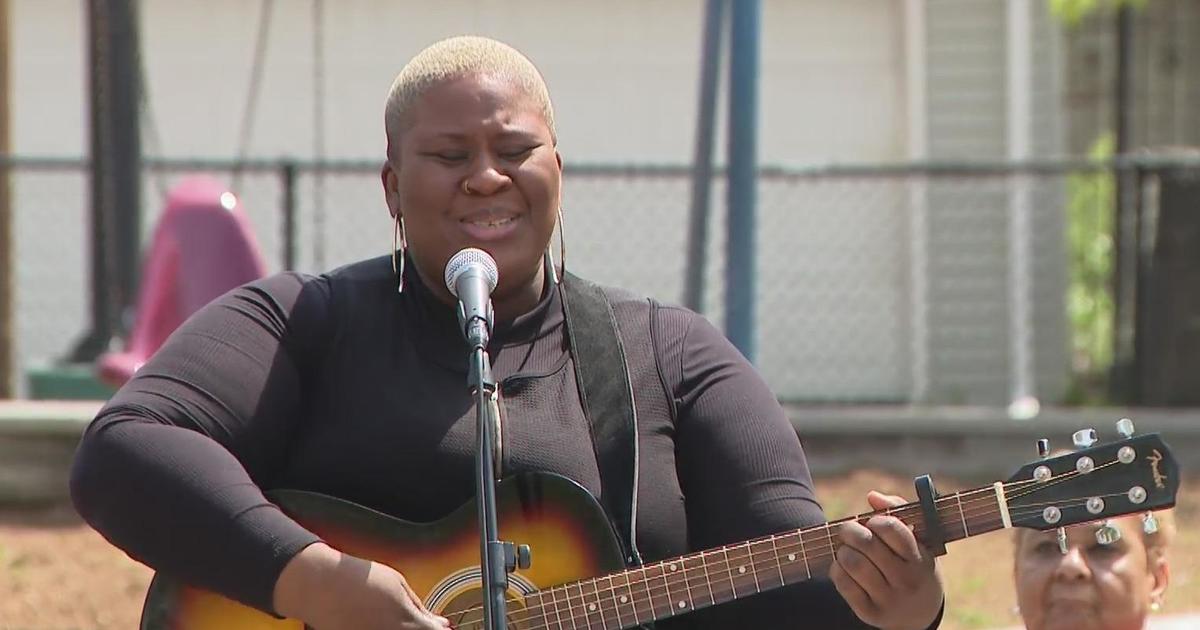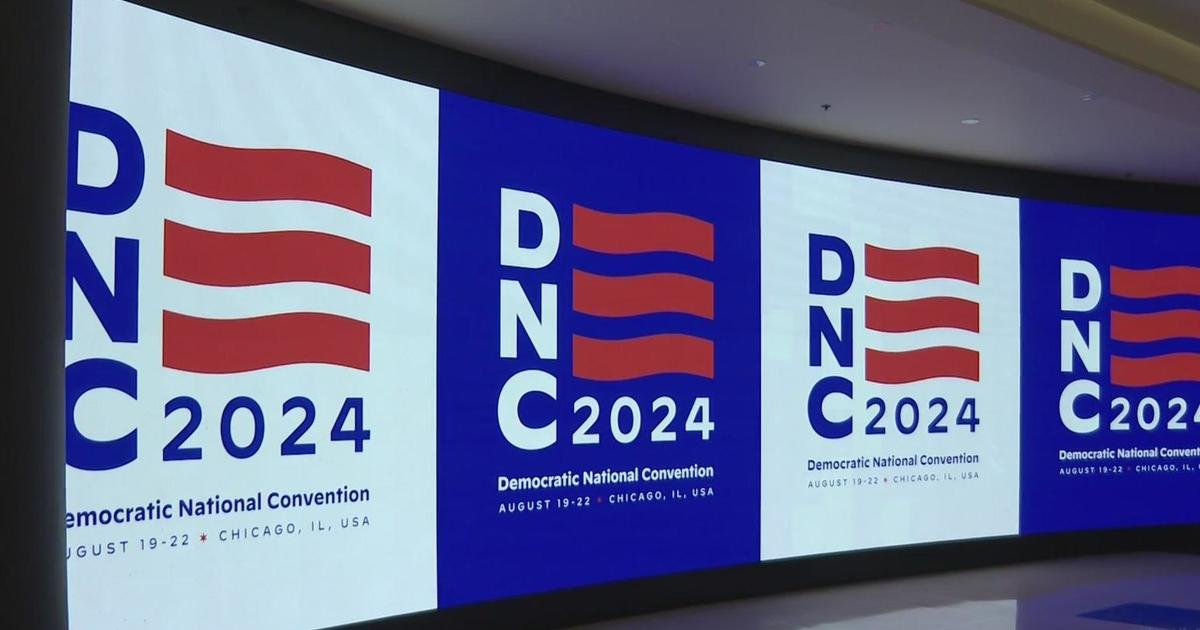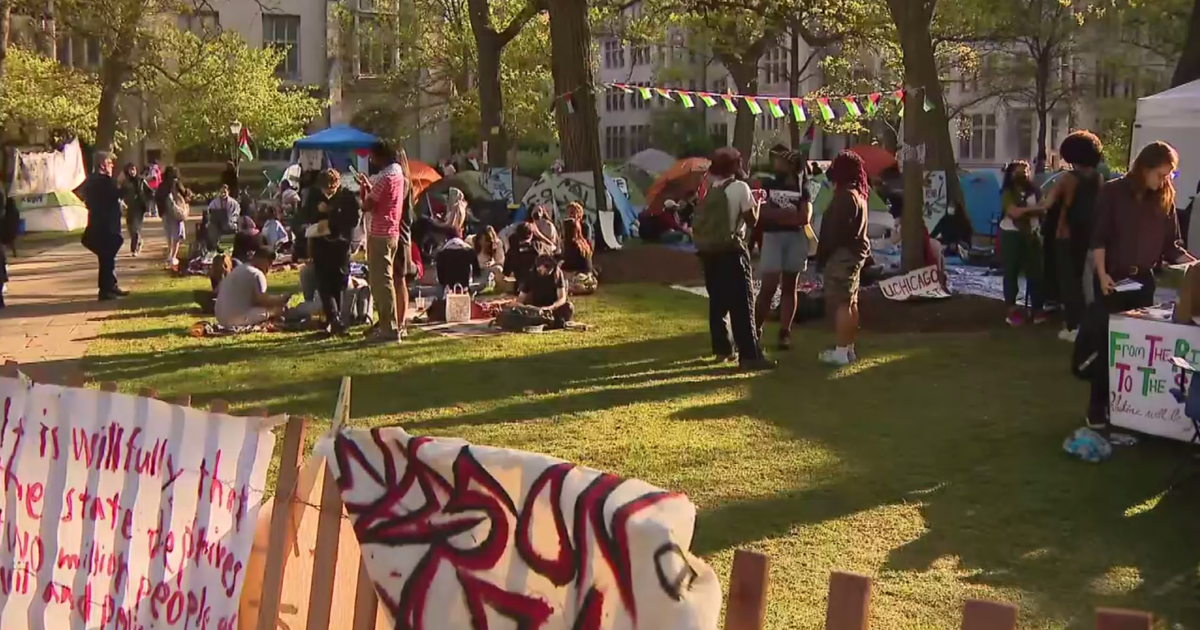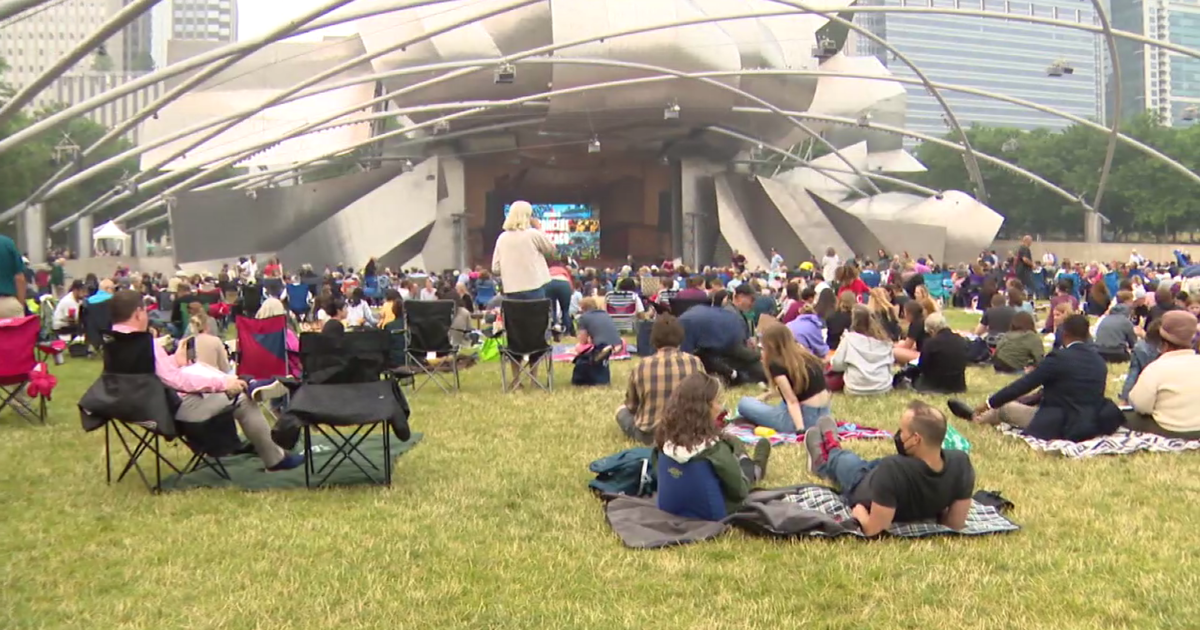Plan for Chicago migrant tent camp in Morgan Park stalls near finish line
CHICAGO (CBS) -- Mayor Brandon Johnson's plans to use a vacant Jewel store and parking lot in Morgan Park to build a migrant tent camp hit an unexpected roadblock on Wednesday, as supporters agreed to delay a final City Council vote amid a heated debate.
The Committee on Housing and Real Estate earlier this week backed a proposal to have the city purchase a 6.5-acre site at 115th and Halsted Streets from Jewel parent company Albertson's for $1 to use the site to set up a so-called "base camp" of winterized tents for up to 1,400 asylum seekers.
Ald. Ronnie Mosley (21st), whose ward includes the Jewel site, has criticized the Johnson administration for moving forward with a migrant camp in his ward despite the community's concerns, and when the proposal was brought up for debate before the full City Council on Wednesday, he reiterated that he does not support the plan.
"I do understand that this is a federal issue humanitarian crisis that we as a city are trying to solve," he said. "I cannot change my pledge to my community, who I have promised that we will make these decisions together."
The site had already been earmarked to become Morgan Park Commons - a development of housing, retail, and park space. The state of Illinois set aside $15 million for that project. The proposal to purchase the site for a migrant shelter would still leave the door open for that development to begin by November 2024, but Mosley said he nonetheless could not support plans for a migrant camp.
Several other aldermen stood to support Mosley's objections, arguing the City Council should honor its unwritten tradition of respecting "aldermanic prerogative" to control such issues in their wards.
Aldermen also argued the city gets too far too fast on migrant sites inside their own wards – thus boxing out residents.
"Our communities don't know - and by the time we hear it, we're being told it's too late," said Ald. Raymond Lopez (15th).
Lopez took particular issue with what he said amounted to the community repeatedly being left in the dark.
"The anger we are feeling from the community isn't because of the migrants. It's because the community has been shut out from this process completely," Lopez said. "They've been told that you will hear about it when we're done."
Lopez said the city needs to come up with a better long-term plan for housing the thousands of migrants who have arrived in Chicago since August 2022, rather than continually standing up temporary shelters on a rolling basis.
"What comes to mind when I look at what we're doing in the 21st Ward – over the objections of the local alderman, by the way, something that should be relevant to each and every one of us – is that we are still a city without a plan," Lopez said.
Lopez said the city can't continue to welcome in asylum seekers without a long-term plan for where to house them, rather than having them wait for shelter by staying at police stations or O'Hare International Airport.
"We have to come up with a plan. The problem is none of us have heard an articulated plan in how we're going to move forward this month, two months, six months from now; where the funding's going to come through, who's going to pay for it, and who we're going to hold responsible at the federal level," Lopez said.
Wednesday's meeting also included heated exchanges about a proposal to ask voters in the March primary election whether Chicago should keep its designation as a sanctuary city.
Ald. Anthony Beale (9th) and Ald. Brendan Reilly (42nd) were among those arguing Chicagoans should get to weigh in on that question, but progressive allies of the mayor have repeatedly blocked that measure.
Critics of the proposed ballot referendum on the city's sanctuary city status said, regardless of what voters might say, it won't stop the influx of migrants to Chicago, and the city needs to focus on providing care to asylum seekers.
Johnson also questioned the goal of asking voters about the Chicago's sanctuary city status, noting the migrants arriving in Chicago since August 2022 are legal asylum seekers, not the undocumented immigrants that Chicago's sanctuary city ordinance seeks to protect.
The mayor said the question should be how to influence the federal government to do more to help ease the flow of Venezuelan migrants into the U.S. by lifting decades-old sanctions that have prompted Venezuelan citizens to seek asylum in other countries.
"I'm confident that, as a city, we will get to the other side of this conversation," Johnson said.
Ald. Carlos Ramirez-Rosa (35th), the mayor's floor leader, argued that the Johnson administration is doing the best it can without more support from the state or federal governments, noting the only shelters that have been set up in Chicago are being run and financed by the city.
"We should be proud of the effort that our city has made, but we also know that it's not enough," he said. "We're going to continue to do what we can to make sure that we are welcoming people the best way that we possibly can in this moment."
Ald. Jessie Fuentes (26th) chastised critics of the city's efforts to house migrants, saying they haven't offered a better plan for the ongoing crisis.
"Show me something better," she said. "This is a humanitarian crisis, and it doesn't matter if we're a sanctuary city or not. Those buses will not stop coming, and so we can debate the question, we can debate with the public, that's not going to help us."
Acknowledging the frequent heated debates that have taken place in City Council over efforts to address the migrant crisis, Fuentes said, "We're angry at the wrong people."
"We should be angry at our federal government, who has imposed 150 sanctions on Venezuela that has caused a migration pattern in the first place," she said. "If you want to be mad at somebody, be mad at everyone who has chosen not to have anything to do with this problem. Let's go ask our governor for more help. Let's ask our president to lift these sanctions. ... We're wasting time fighting each other."
Wednesday's meeting also was the first time many community members were able to confront the mayor about the migrant crisis, and their frustration with a lack of transparency from City Hall was on full display.
They spoke in solidarity with Brighton Park and Morgan Park – two neighborhoods under consideration for migrant tent basecamps – as they voiced vehement opposition to plans to use the lot at 115th and Halsted, and another one at 38th and California, to house migrants.
Several opponents of the migrant camp plans were removed from the City Council chamber after repeatedly disrupting the meeting by shouting over aldermen who were speaking on the floor.
In the face of a growing number of aldermen saying they would vote against the purchase of the vacant Jewel site in solidarity with Mosley's opposition, Housing Committee Chair Ald. Byron Sigcho-Lopez (25th) moved to delay a vote by the full City Council, "Just given the fact that we need more debate on this item."
The soonest the full City Council could now vote on the plan is at its next regular meeting on Tuesday.
Mayor Johnson was also asked late Wednesday about efforts by him and the mayors of Denver, Houston, Los Angeles, and New York - to better control the growing number of migrants coming to those American cities.
"Tomorrow, I'm going to be in D.C. in solidarity with these mayors – as we've had multiple conversations over the course of my short five months in office. And we're going to push the federal government, just like we're going to push the State of Illinois to do its part," Mayor Johnson said. "Look, Chicago is leaning in. We have borne the brunt of the responsibility here. That's not an equitable distribution of how government would cooperate."
The mayor says his plan is to have migrants camps up by the start of winter.
"It snowed, but winter is not here yet. The federal government and the state have to do more. The people of Chicago - we have been incredibly resilient and patient, and clearly, this patience is running short."
Mayor Johnson was pressed several times on reports that the city is exploring moving migrants to the old Museum of Broadcast Communications, at 360 N. State St. in River North. He would not answer that question.
The mayor said the city is looking at many sites - and challenged members of City Council who say they learn of the locations for migrant shelters so late – and then by the time they say they have a problem with it, they're told the plan is too far gone.



